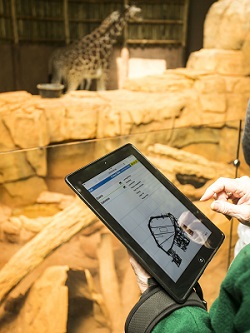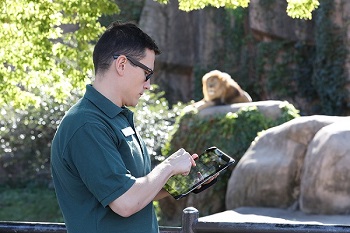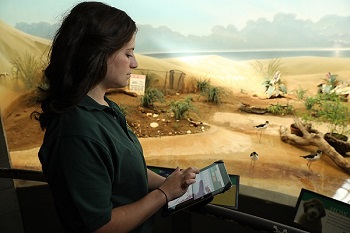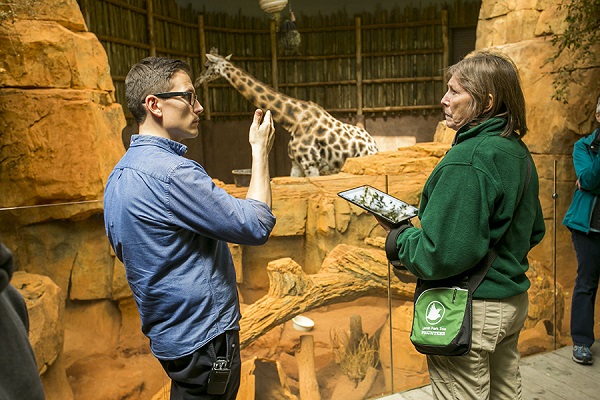By Kevin Bell
Lincoln Park Zoo

If you’ve visited the Lincoln Park Zoo in recent months, you may have noticed a lot of folks tapping away on iPads next to animal exhibits. No, they’re not snapping selfies or playing Pokemon Go. These science-focused individuals are supporting animal care and welfare through a behavioral-monitoring app called ZooMonitor.
Led by Megan Ross, Ph.D., the zoo’s Senior Vice President, we launched ZooMonitor four years ago and have been refining it ever since. And this month—after further feedback from a dozen other zoos, two aquariums and two animal sanctuaries that have also put it through the paces—we made it available as a web app at zoomonitor.org. It’s free for members of the Association of Zoos and Aquariums, World Association of Zoos and Aquariums, Global Federation of Animal Sanctuaries and American Alliance of Museums . For a small fee, unaffiliated users can use it, too.
ZooMonitor makes it easier for wildlife professionals to collect data that informs and helps us evaluate the well-being of animals in our care. A data collection-based app, ZooMonitor includes mapping tools and analytics that help reveal patterns in animal behavior and can be customized for complex or simple projects. Observers may record everything from body condition to social interaction to habitat use.
The app is helping to change the way we care for animals at the zoo by infusing science into animal management decisions. In the past, this sort of data was not readily available to caregivers in real time. Now, they can draw on up-to-the-minute data to help make important decisions.


By analyzing patterns over time, we can draw on these data sets to plan animal introductions or enrichment that foster natural behaviors. Zoo endocrinologists also can correlate the data with hormones collected from fecal samples to monitor stress and pregnancies. Perhaps most importantly, these finely grained observations give us a clearer picture of an animal’s internal state of well-being. Many species, for instance, hide injuries as they would in the wild for defensive purposes. Animals can’t tell us how they’re feeling—ZooMonitor helps to bridge that gap.

Under the guidance of Welfare Monitoring Post-Doctoral Fellow Dr. Jason Wark, a growing corps of trained Lincoln Park Zoo volunteers and Animal Care staff have provided valuable data on more than 25 species at 23 exhibits. This project was made possible in part by the Institute of Museum and Library Services MG 30-14-0045-14. Thanks to this generous support, Jason is now hard at work introducing ZooMonitor beyond our borders, including to both national and international colleagues. So far, more than 90 institutions have signed on. We can’t wait to see the results.

About the Author
Kevin Bell is President and CEO of Lincoln Park Zoo in Chicago, Illinois.